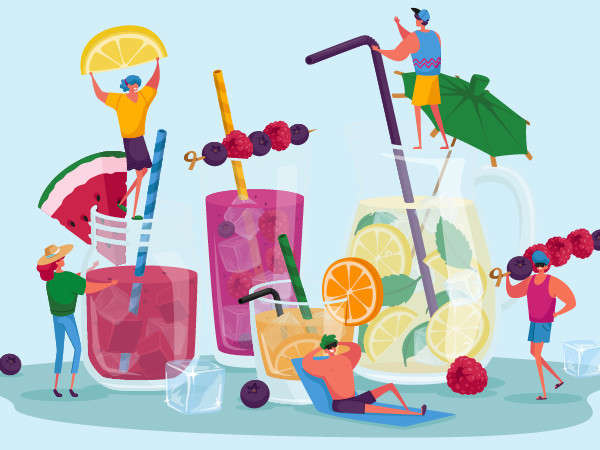
Beverage industry shifts offer new opportunities, says Circana
The beverage industry has undergone significant changes over the past year, presenting new opportunities for both brands and retailers, according to a new report from Circana, an advisor on consumer behaviour.
The analysis, titled ‘Sector Spotlight: Beverages – What we drink, what we think,’ reveals evolving trends in the FMCG beverage sector as brand portfolios expand beyond traditional categories, introducing innovative crossover products. Changing consumption habits are driving demand for healthier, functional, and convenient options, while new routes to market, such as e-commerce and direct-to-consumer channels, are broadening opportunities for brands.
Circana’s report highlights the sector’s rapid adaptation to health, innovation and sustainability trends across Europe’s ‘Big 6’ markets (France, Germany, Italy, Netherlands, Spain, UK).
The Total Beverages market, valued at €160bn, grew by 2.4% over the past year. Alcoholic beverages hold the largest share by value at 43%, or €69bn, while Ambient Drinks lead by volume at 64%, or €62bn. However, rising prices, particularly for Ambient Drinks, have led to a 1.4% drop in overall beverage volumes. Alcoholic beverages were more affected, with a 2% decline, compared to a 1.2% fall in non-alcoholic categories.
Despite the volume decline, innovation in non-alcoholic drinks is driving growth. Health-conscious consumers are increasingly choosing functional beverages, plant-based options and protein-enriched drinks. Sports and energy drinks are also gaining popularity as substitutes for traditional caffeinated beverages, especially among younger consumers.
Ananda Roy, senior vice president of global thought leadership and strategic insights at Circana, said: “With volume recovery beginning to take shape as inflation eases across major European markets, brands must seize this opportunity to innovate further and meet evolving consumer expectations.
“Our analysis highlights the importance of blurring category boundaries to create excitement among consumers. Alcohol brands are increasingly launching low/no alcohol variants to tap into health-conscious and younger demographics, while non-alcoholic beverages continue to push into traditional alcohol spaces.”
Sustainability and affordability have become top priorities for consumers. Circana’s data shows that 55% of Spanish consumers have switched brands for more eco-friendly packaging, with similar trends seen in Germany, France and the UK. At the same time, economic pressures are pushing consumers towards promotions, smaller pack sizes and private-label options to manage costs.
The rise of at-home wine tastings and cocktail kits is also reshaping how consumers engage with brands. Collaborations between categories, like protein drinks and alcohol-free cocktails, are sparking interest. Brands are also focusing on social responsibility, with partnerships linked to the Summer Games promoting low & no-alcohol options.
Roy added: “Whether through innovation, health-conscious offerings, or sustainable practices, the opportunities within the Total Beverages sector are vast. Brands that embrace these changes will be well-positioned to succeed in this dynamic landscape.”
Keywords:
- fmcg
- Circana
- Ananda Roy
- Sector Spotlight: Beverages – What we drink
- what we think
- EU6
- Ambient Drinks






